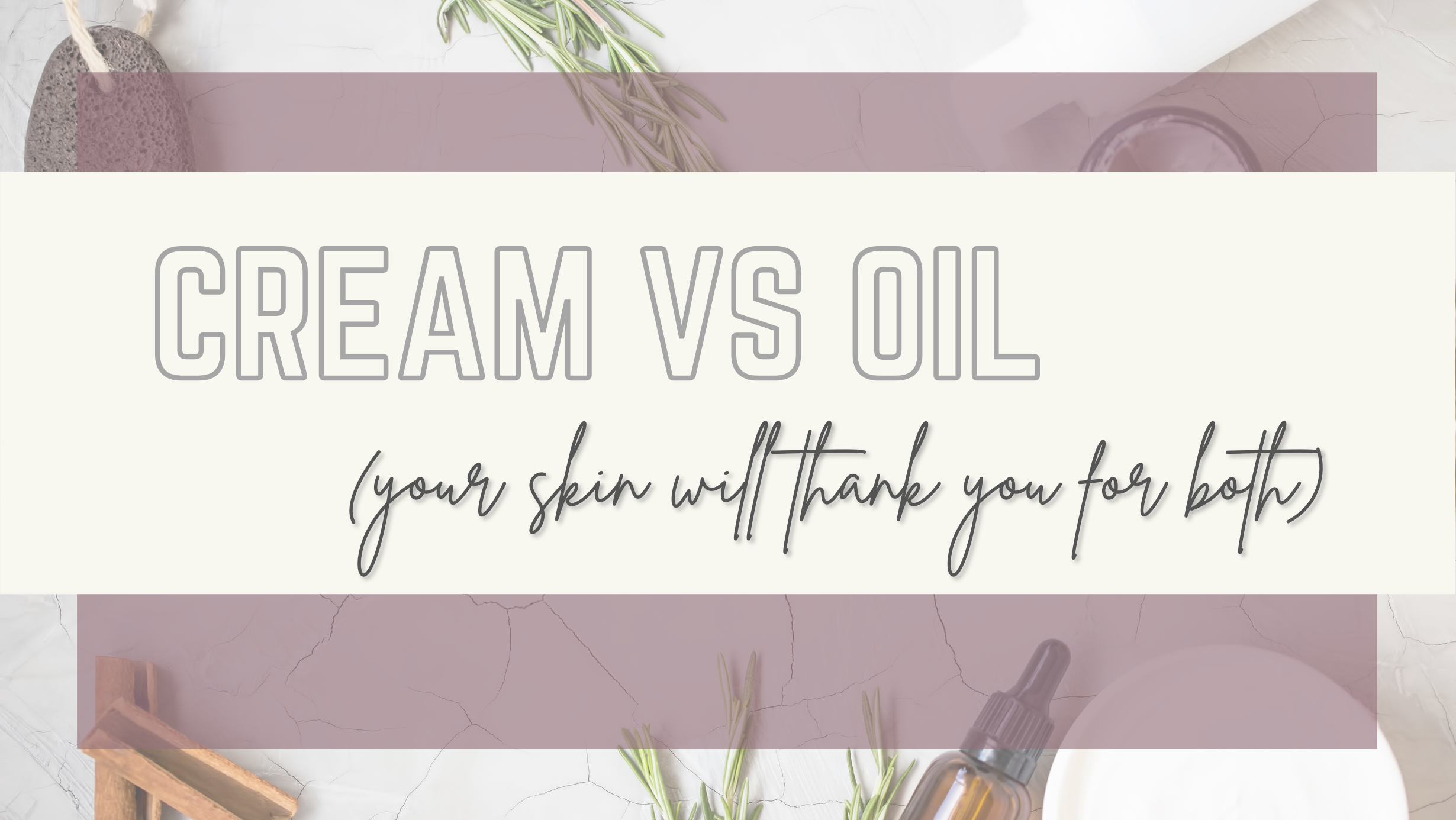When you think of any sort of topical face moisturizer, your mind will generally go to one of two places: a cream or an oil. Perhaps you’re a die-hard for one or the other, but we’re advocates that both are an important part of any skincare routine - as long as you know the difference and when/how to use them.
Hydrating and Moisturizing are NOT the Same
The terms are used interchangeably all the time, but they actually have two different meanings - and the products that they describe are going to be equally as different.
-
Hydrating refers to something containing water molecules. Sometimes oils will be referred to as hydrating - but that’s not (technically) possible since they do not contain water. No water = no hydration.
Do you have rough or dry skin? There’s a good chance you might need more hydration (both the drinking kind and topically). And then once you have enough water, your skin needs something to help retain it on your skin and lock in the hydration - like a moisturizer (which is where the oil comes in).
- Moisturizing typically refers to a combination of water and oil which work together to lock in the hydration (water). Moisturizers are a more universal term that can encompass a combination of water/oils or just oils.
Creams
For all skin types, at a minimum, you’ll want to incorporate a cream moisturizer - this will give you both the hydration and moisturizing that all skin types crave. Remember: you need to start with something that contains water molecules in order for it to hydrate your skin. Here's a hint: we have perfectly balanced our Moisturizing Beauty Cream to be a clean blend of hydration and non-comedogenic oils (won’t clog pores) so that it works well for all skin types. And remember: when layering skincare products after cleansing and toning, make sure you apply cream/water-based products FIRST. Water in a cream can’t penetrate oil-based serums, so if you apply it the other way around you aren’t going to get the hydration you’re expecting.
Oils
Based on your skin-type, a facial oil would then be your last step in your skincare routine. Many people think that they can opt out of this step - and you can, it’s a free country and all - but we don’t think you should! When used correctly and with the appropriate combination of ingredients, facial oils carry a ton of wonderful benefits (and are a great vehicle for essential oils and other concentrated ingredients). Here are some facial oil tips based on skin types:
-
Oily skin - Opt for a light oil that’s non-comedogenic (won’t clog pores) - grapeseed is one of the lightest out there, so look for that on ingredient labels. Yes in some schools of thought this seems counter-intuitive to add oil to already oily skin. BUT, it can actually be a good thing because it can help to regulate your skin’s own natural production of oil (sebum) since oily skin comes from an over-production of sebum from your sebaceous glands.
-
Combination skin - Stick to lighter oils. It will help balance your skin, but don’t overdo it with heavy oils that could trigger breakouts in the oilier areas. Squalane is a great option because it mimics your skin's natural oil production.
-
Dry skin - Your skin will typically tolerate (and benefit from) a richer facial oil, including great options such as olive oil and evening primrose. Jojoba oil is also a great ingredient to look for and is another unique oil (fun fact: technically a wax) that's very similar to your skin’s own natural sebum.
-
“Normal” skin - congratulations, you have the holy grail of balanced skin types! Don’t take it for granted (because the rest of us are jealous) and make sure you do still keep up with a skincare routine that utilizes both a cream and an oil so that you can maintain that amazing healthy glow!
And for the love of all things, please don’t put plain coconut oil on your face (it’s fantastic everywhere else, just not on your face). I don’t care if your sister’s boyfriend had an aunt whose best friend solved her face problems with it - that was an anomaly and for most people it will not help you. #sorrynotsorry
Final Thought
Both creams and oils can (and should) have a place in your routine. The important things to remember are:
1. Pay attention to your skin type
2. Buy from trusted brands that use quality ingredients
And most importantly:
3. Read the labels!



